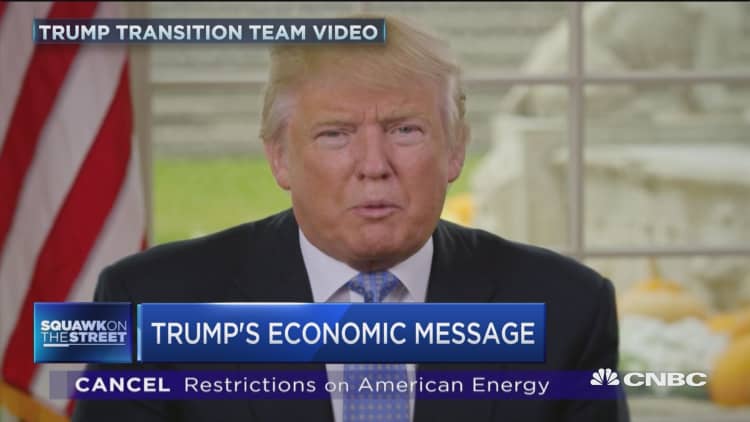
President-elect Donald Trump faces an uphill battle fulfilling his promises to revive the U.S. coal industry. The battlefield became even more pitched when Canada said it would speed up its effort to reduce its coal consumption.
America's neighbor to the north was the fifth-largest market for U.S. coal in 2015. Its pledge on Monday to get off coal sooner than expected will only pile more pressure on a U.S. industry that has seen nearly half of its production fall into bankruptcy due to falling demand, lower prices and a global oversupply of coal.
To be sure, Canada's appetite for U.S. coal was already declining. The chart above also shows India's growing consumption offset the decline in exports to Canada.
But among the top five U.S. coal export markets, only India and the Netherlands purchased more supplies last year. And imports through the first six months of 2016 fell in each of those top destinations, except Brazil. Large year-to-date declines in the Netherlands, South Korea and India have dwarfed the Brazil bump.
U.S. coal exports fell 24 percent overall in 2015 and have fallen another 32 percent through the first half of 2016.
Trump is vowing to put coal miners back to work by rolling back regulations, offering tax breaks to invest in infrastructure and ending a moratorium on mining on federal land enforced by President Barack Obama. He would also cancel Obama's Clean Energy Plan, which would force power plants to capture more greenhouse gases.
However, those changes would not address the core problem faced by the U.S. coal industry, which is that it can't compete on price with surging U.S. natural gas production.
The route to "market equilibrium" for an ailing U.S. coal industry is further industry consolidation and more mine closures, the International Energy Agency said last week in its annual World Energy Outlook. After the industry shrinks through the early 2020s, the remaining U.S. companies will emerge as solvent and more fit to compete, according to the IEA's forecast.
It is critical for Trump to defy the odds, because he has not articulated a Plan B for coal country. His campaign rival, Hillary Clinton, laid out a plan to invest $30 billion to retrain workers in coal-producing regions so they could work in other fields.


